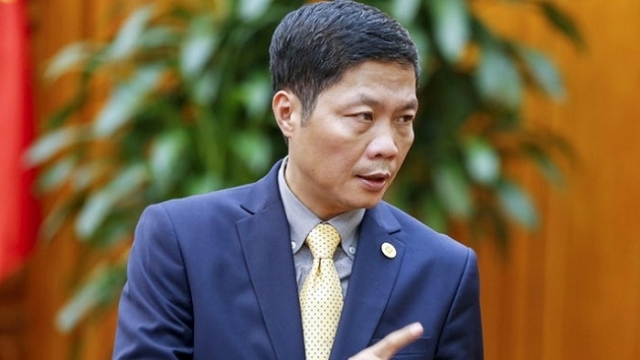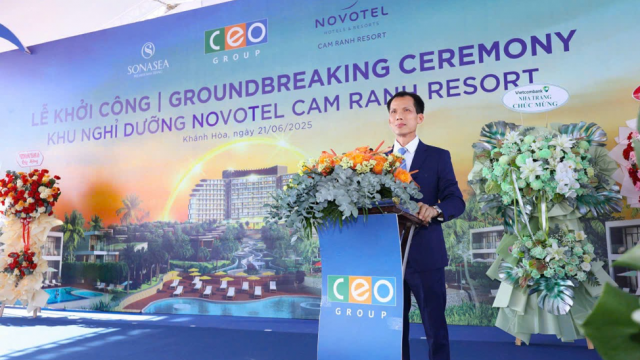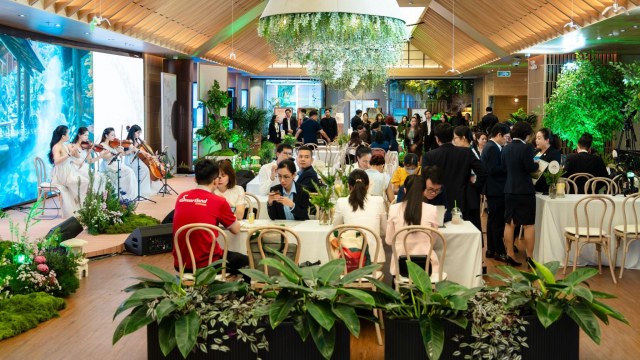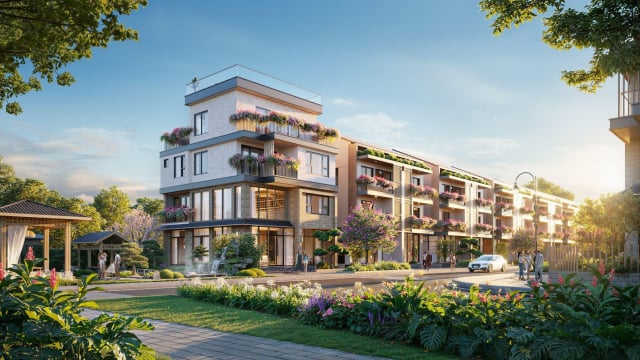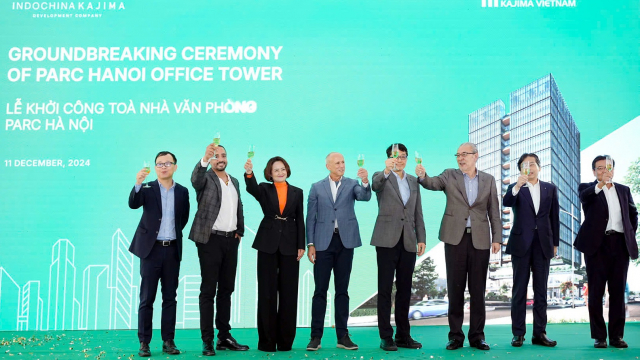Property
Logistics poised to be a promising sector in Vietnam
With improving market fundamentals, Vietnam stands a good chance of winning logistics market share as its regional peers shift towards more mature industrial development, according to Jones Lang Lasalle.

Real estate and investment manager Jones Lang Lasalle (JLL) states that the industrial property market in Vietnam, including industrial land, ready-built factories, warehouses and other logistics properties, is in the nascent stages of development.
Accordingly, industrial parks and other industrial properties that are mostly sparse are not gathered for development on a regional basis and competing with each other mainly on location, rather than on standards of infrastructure, buildings, and services.
Besides, major occupiers are predominantly coming from labour-intensive industries, including textiles and wearing apparel, food products, wood products and furniture, and rubber and plastics products. The contribution of the value-added sector is still insignificant.
Given the country’s improving market fundamentals, JLL believes that Vietnam stands a good chance of winning market share with notable advantages making it an attractive destination for industrial development as its regional peers shift towards more mature industrial development.
According to JLL, Vietnam’s advantageous geographical location with access to the world’s major seaborne trade routes has offered the country huge opportunities to develop maritime transport, particularly for logistics services.
In addition, the country’s close proximity to China makes it a worthy option for manufacturers looking at alternative locations in Southeast Asia because the operating cost in China has been continuously increasing in recent years.
The key drivers of Vietnam’s economic growth can also be attributed to urbanisation; foreign direct investment; growth in the manufacturing sector; and growth in the middle-income population. These factors have created a spillover effect, driving the country’s demand for international transport and logistics services.
As the domestic economy moves from agriculture to manufacturing and services, JLL says that household income is likely to increase. According to the Brookings Institute, Vietnam is expected to enjoy the strongest growth in the middle-income population bracket, with a 19 per cent CAGR (Compounded Annual Growth rate) from 2018 - 2020, and an increase of 14 per cent from the previous decade.
The Vietnam General Statistics Office also shows that Vietnam is experiencing a “golden population structure” with the average working age in Vietnam ranging from 20 to 50 with a median age of around 30 in 2016. According to JLL, a young population coupled with growth in average income will support purchasing power and help the country remain an attractive destination for both local and foreign investors.
Thanks to its existing variety of tax incentives and low labour costs, Vietnam has become more attractive to foreign manufacturers, their associated suppliers, and supporting industries. This, in turn, will allow further potential growth in the industrial sector generally and logistics services in particular.
According to JLL's manager of research and consultancy Trang Le, in comparison to its regional peers, the Vietnam market is still comparatively immature. However, as Vietnam steadily approaches the growth stage of its industrial market evolution, specific areas of opportunity are beginning to emerge as it develops an intermediate product and value-added offering.

Moving from more labour-intensive to more capital-intensive and automated resources, JLL anticipates that the typology of the industrial offering will steadily become more sophisticated as occupier requirements develop and industrial market demand moves from its current low specifications to higher specifications needs.
JLL's representative says that a significant area of land is planned for industrial development until 2020, nearly double the current market size. Thus, huge opportunities exist in Vietnam for both existing players and potential new market entrants to access potential land banks and capture market share.
Paradox of Vietnam’s logistics: High costs but low quality
Hai Phong industrial property powers up with new project from Indochina Kajima
The project Core5 Hai Phong from Indochina Kajima and Itochu Corporation will deliver approximately 80,000 square metres of world-class ready-built factory for lease, handover expected in the first quarter of 2027.
A decade of unprecedented apartment price surge
A decade of relentless apartment price growth has pushed the dream of homeownership further out of reach for Vietnam’s middle- and lower-income earners.
Essensia Parkway sells out within hours, marking an outstanding partnership with WorldHotels
Essensia Parkway makes significant impact in the high-end real estate market as 100 per cent of the limited collection was successfully registered within just a few hours at the launching event with the theme “Live lux-well, in a truly refined world”.
Essensia Parkway gains global prestige through WorldHotels - Phu Long collaboration
Essensia Parkway is set to mark a significant milestone as the first branded residences project in Ho Chi Minh City to be operated by WorldHotels – one of the finest portfolios of independent hotels and resorts within BWH Hotels.
Indochina Kajima breaks ground on Grade A office building in Hanoi’s emerging hub
Parc Hanoi marks Indochina Kajima's first office-for-lease project in its $1 billion investment plan in Vietnam.















